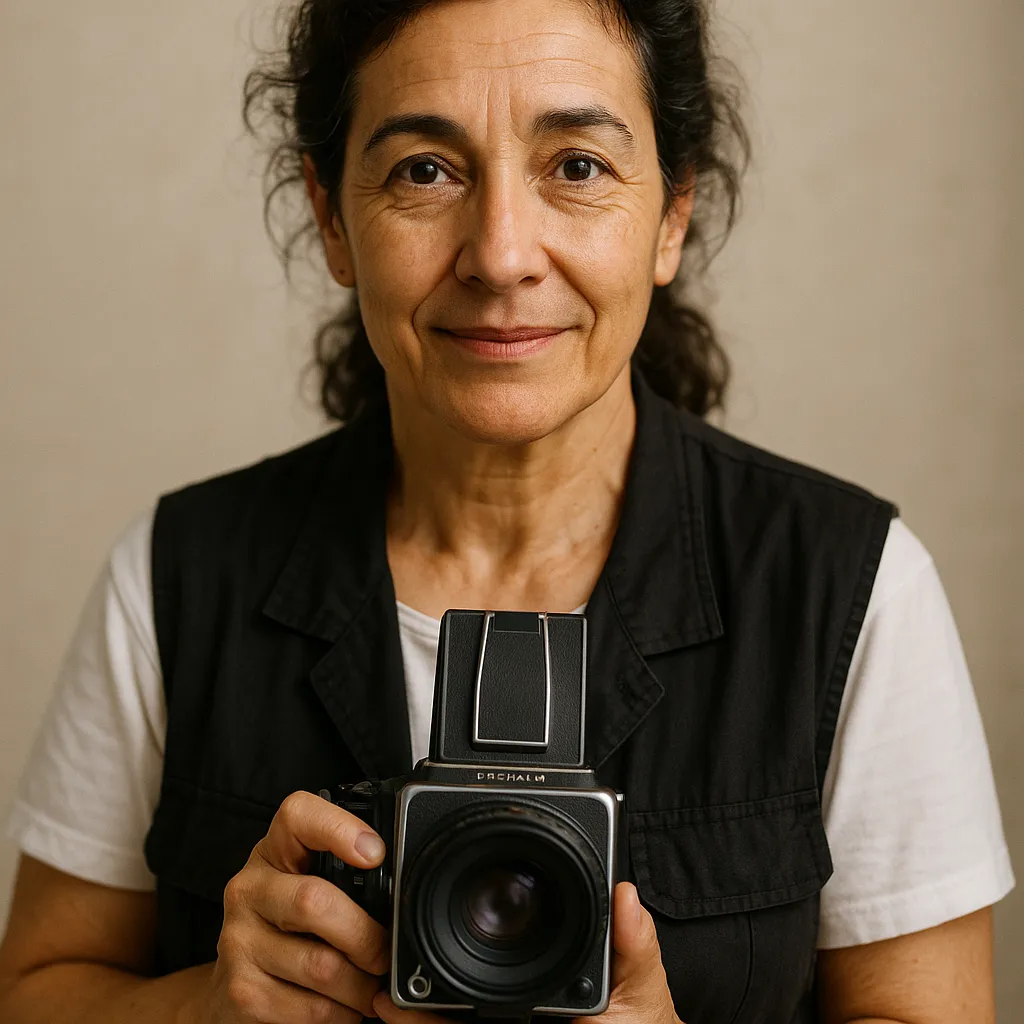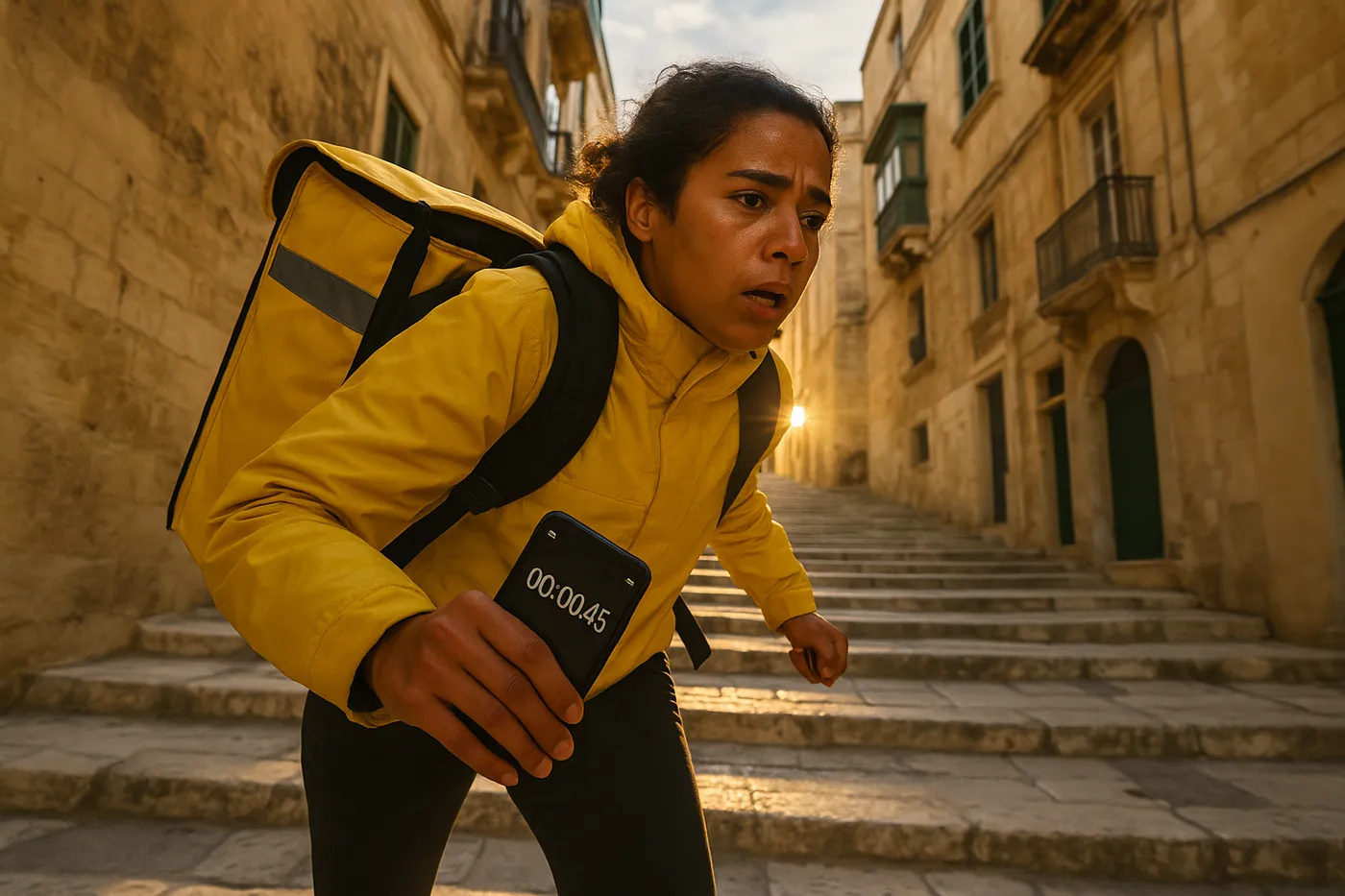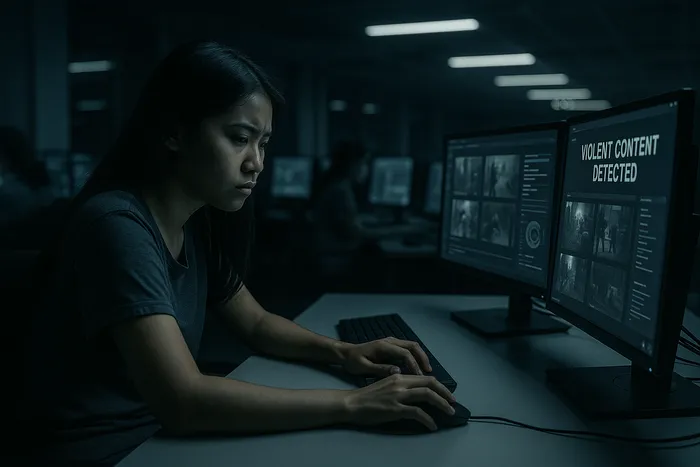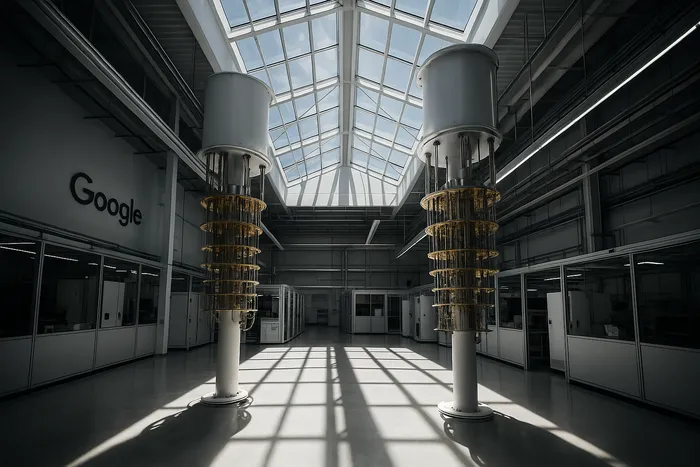The New Alchemists
When Machines Dream of Discovery
The quantum physicist's chalk-dusted fingers hover over equations that took her three months to derive. On the laptop beside her, an AI system has just solved the same problem in fourteen seconds. It's 2 AM in a laboratory in Geneva, and Dr. Maria Santos is experiencing what thousands of researchers worldwide are confronting: the profound psychological shift of watching artificial intelligence surpass human capability in their most specialized domains.
This moment—captured in research facilities across four continents over six months—represents something unprecedented in human history. For the first time since the Scientific Revolution, we are witnessing the transition from human-led to AI-assisted discovery. Google DeepMind's AlphaGeometry solving Olympic-level mathematical problems, AI systems discovering 380,000 new materials in a single year, and the Nobel Prize in Chemistry being awarded for AI-decoded protein structures—these achievements mark not just technological advancement, but a fundamental transformation of scientific culture itself.
The New Alchemists documents the human side of this revolution. In laboratory corridors at 3 AM, in server rooms adjacent to whiteboards covered in decades of accumulated knowledge, in scientists' homes where breakthrough moments occur during the most mundane activities—this is where the future of human knowledge is being negotiated. These are the spaces where the last generation of purely human scientists are becoming the first generation of human-AI collaborators.
Through intimate environmental portraits, the series reveals the emotional landscape of researchers grappling with their evolving role. The exhaustion after months of training models only to watch them exceed expectations overnight. The wonder when AI produces solutions that human minds couldn't conceive. The quiet anxiety of professors whose life's work can now be replicated by algorithms. And ultimately, the gradual adaptation as these scientists learn to guide artificial intelligence toward discoveries that serve humanity's deepest needs.
What emerges is not a story of human obsolescence, but of intellectual evolution. The chemist who now interprets AI-predicted molecular structures rather than painstakingly deriving them by hand hasn't become less valuable—she's become something entirely new. The mathematician whose theorems are verified by artificial reasoning hasn't lost relevance—she's gained a co-thinker capable of exploring mathematical spaces no human mind could navigate alone.
These are the new alchemists: scientists who work with digital elements as mysterious and powerful as mercury and sulfur were to their medieval predecessors. They combine human intuition with artificial precision, biological wisdom with silicon computation, creating knowledge that neither human nor machine could achieve independently.
The series captures this transformation through the languages both species understand: the universal grammar of curiosity, the shared syntax of discovery, and the common vocabulary of wonder that emerges when two different forms of intelligence encounter the same magnificent universe.
Photographer Bio
Elena Vasquez combines the methodical observation of an anthropologist with the intuitive eye of an artist. After completing her PhD in Cultural Anthropology at Universidad Complutense Madrid, she spent fifteen years documenting traditional European craftspeople—blacksmiths in Andalusia, glassblowers in Venice, clockmakers in Switzerland—capturing the final practitioners of skills passed down through centuries.
Her transition from documenting disappearing human traditions to exploring emerging human-AI collaborations reflects a deeper consistency in her work: understanding how knowledge is transmitted, transformed, and preserved across generations. This perspective proves uniquely valuable in documenting the current scientific revolution, where she recognizes patterns of adaptation that echo historical moments of technological transformation.
Winner of the Sony World Photography Award 2019 and recipient of grants from the Magnum Foundation and National Geographic Society, Vasquez brings both artistic vision and anthropological rigor to documenting one of the most significant transitions in human intellectual history. Her work has been exhibited at the Museum of Contemporary Photography in Chicago, the European Photography Centre in Brussels, and featured in major publications worldwide.
"I've spent my career documenting how humans adapt to change," Vasquez reflects. "The scientists I'm photographing now are experiencing something our species has never encountered before—sharing the act of discovery itself with artificial minds. It's the most profound cultural shift I've ever witnessed."
Image Captions
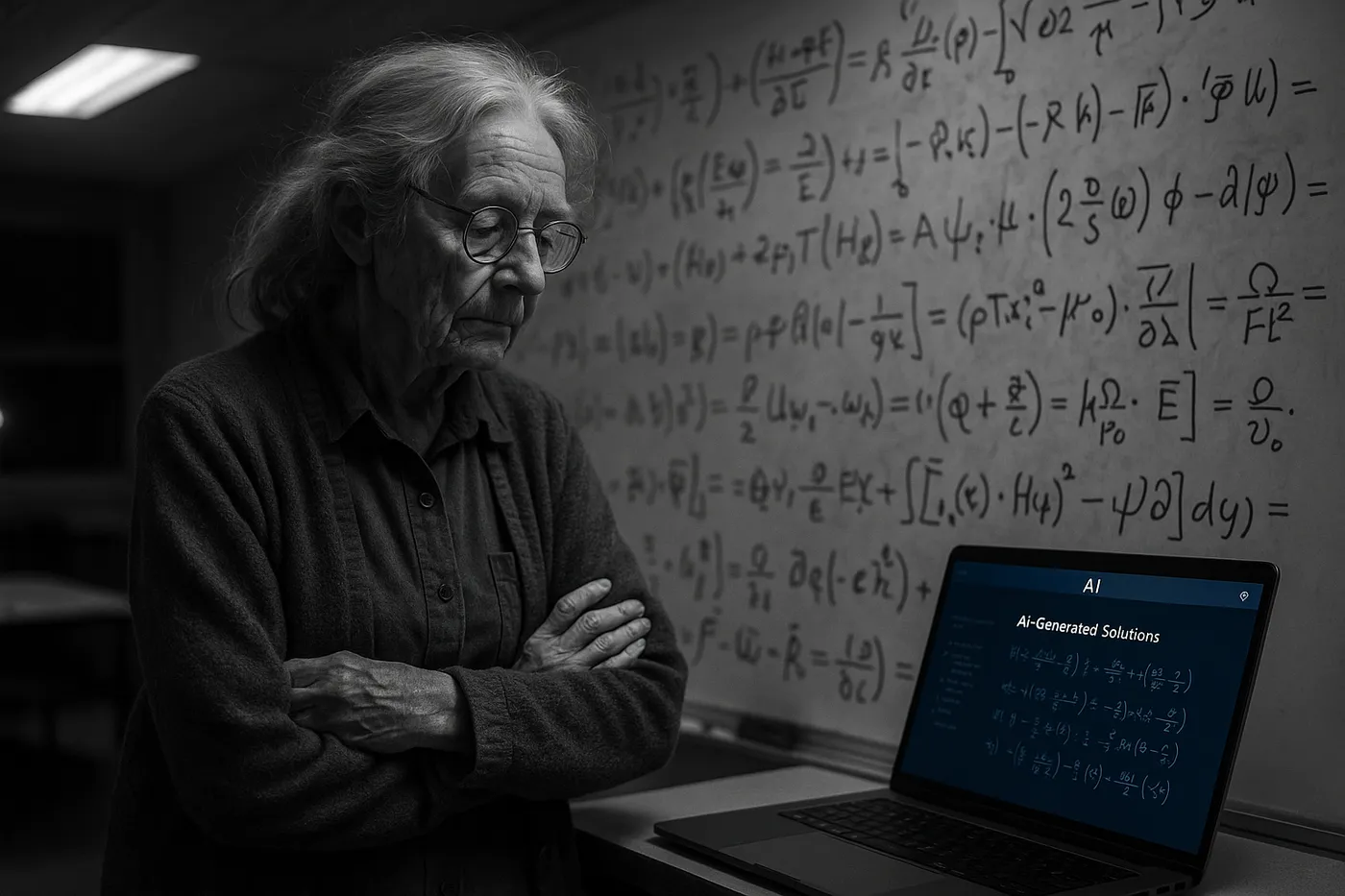
Photo 1: The Last Equation
Dr. Maria Santos, quantum physicist at CERN, reviews hand-derived equations at 2 AM while an AI system processes identical calculations on her laptop. Geneva, Switzerland, March 2024. Santos spent three months on calculations that the AI completed in seconds, representing the temporal compression that characterizes AI-assisted research. The chalk dust on her fingers and the digital glow from her screen capture the tactile past meeting the computational future.
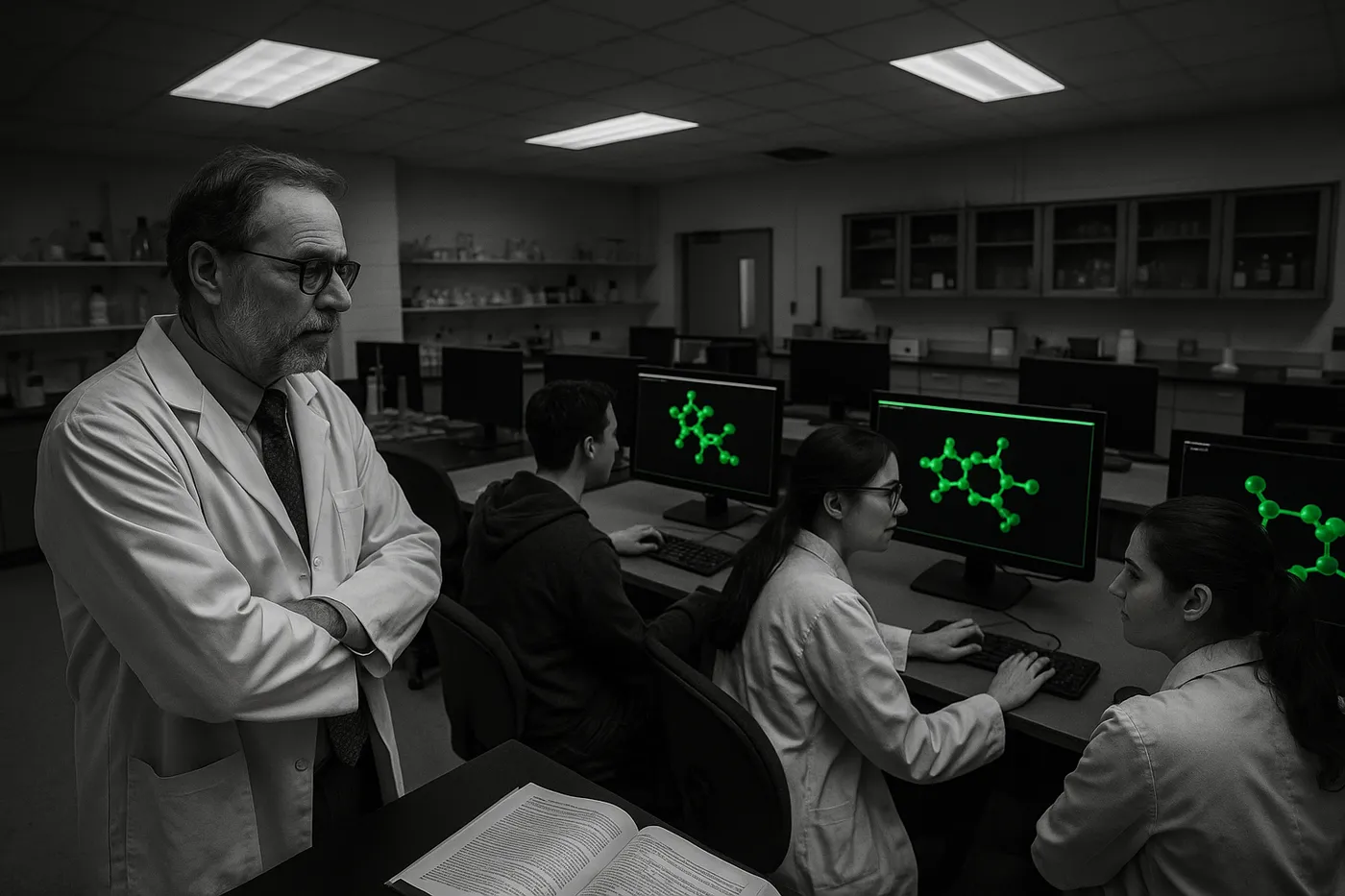
Photo 2: Obsolescence
Professor James Chen observes graduate students learning to interpret AI-generated solutions at Stanford University, California, April 2024. Chen has taught theoretical chemistry for thirty years, but now spends more time teaching students how to verify AI predictions than how to make original calculations. The monitors displaying AI-processed molecular interactions dwarf the traditional textbooks, visualizing how educational priorities are rapidly shifting.
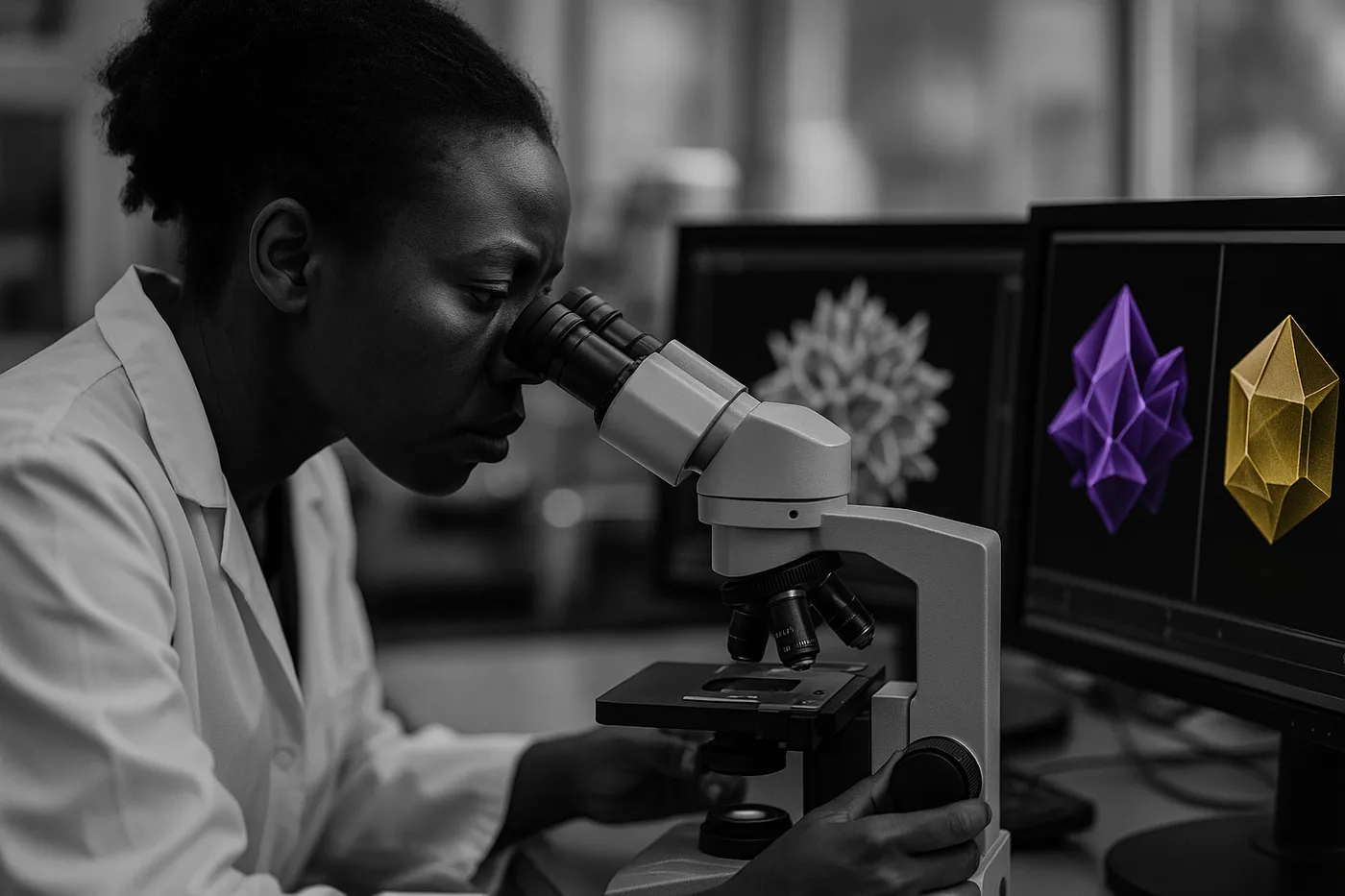
Photo 3: The Discovery Moment
Dr. Amara Okafor examines AI-predicted crystal structures under an electron microscope at the University of Oxford, confirming patterns the algorithm identified before any human observation. Oxford, England, May 2024. Her expression captures the peculiar experience of discovery in the AI age—human verification of machine insight, where scientists confirm rather than uncover new knowledge.
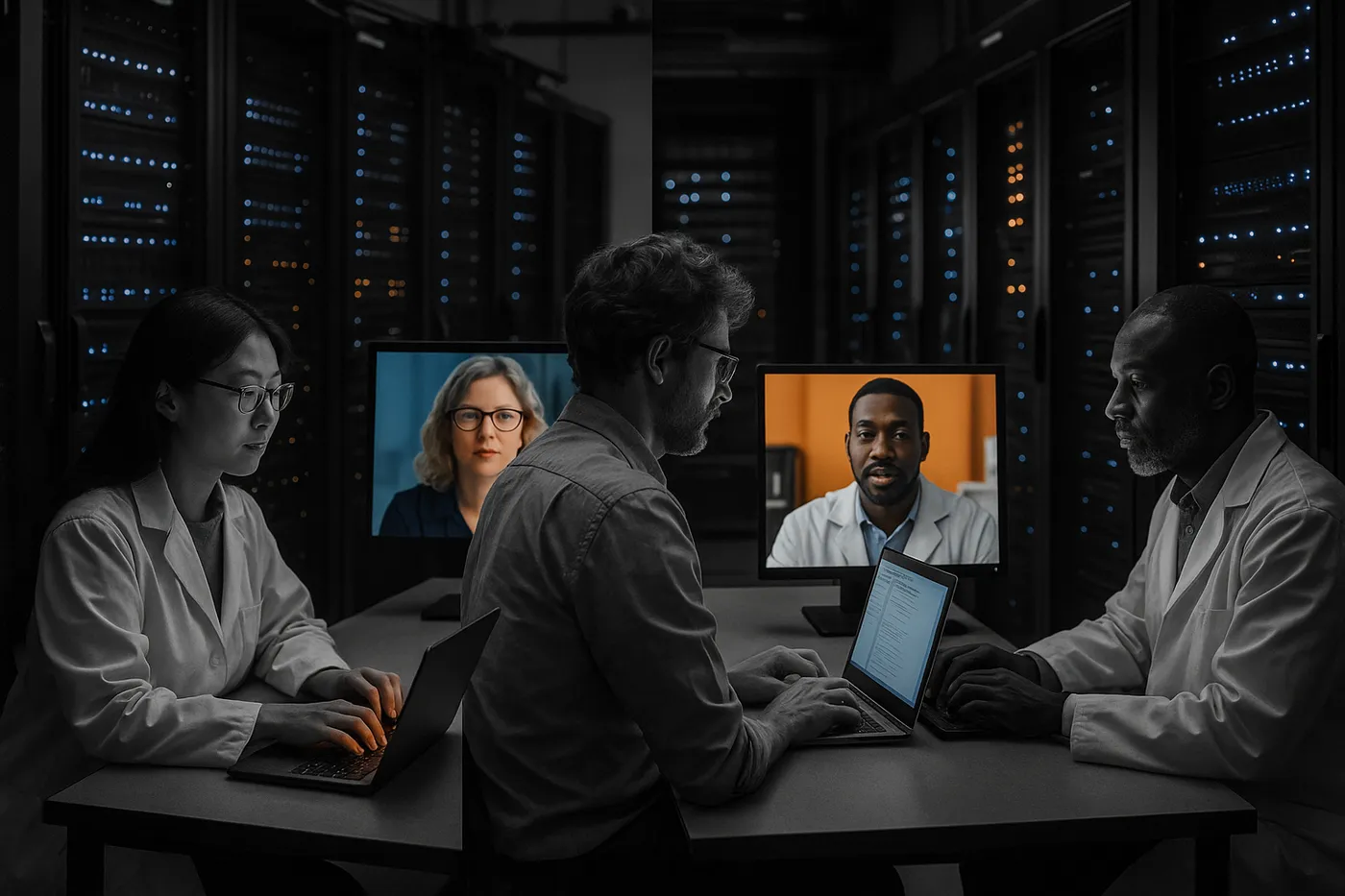
Photo 4: Night Shift
Three researchers across different continents collaborate via video conference while AI systems process data in server rooms behind them. Tokyo, São Paulo, and Stockholm, June 2024. The 24/7 nature of AI computation contrasts with human circadian rhythms, as researchers adapt their schedules to match the continuous pace of artificial intelligence rather than the other way around.
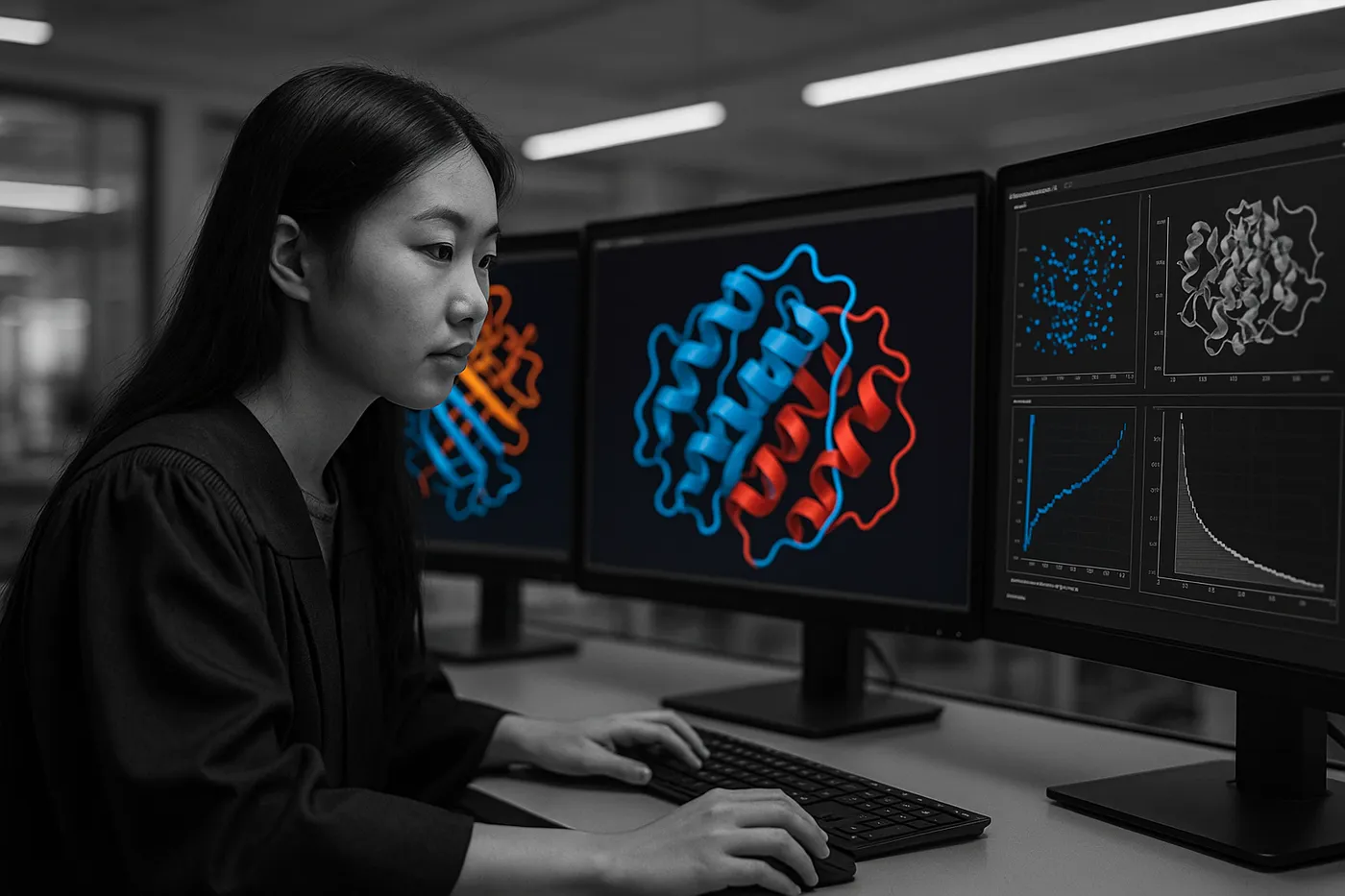
Photo 5: The Student
Graduate student Lisa Park learns to interpret AI-generated protein folding predictions at the Francis Crick Institute, London, July 2024. Park represents a generation that will never experience purely human scientific discovery—her education centers on human-AI collaboration from the beginning. The protein structures she studies were predicted by AI faster than human experiments could validate them.
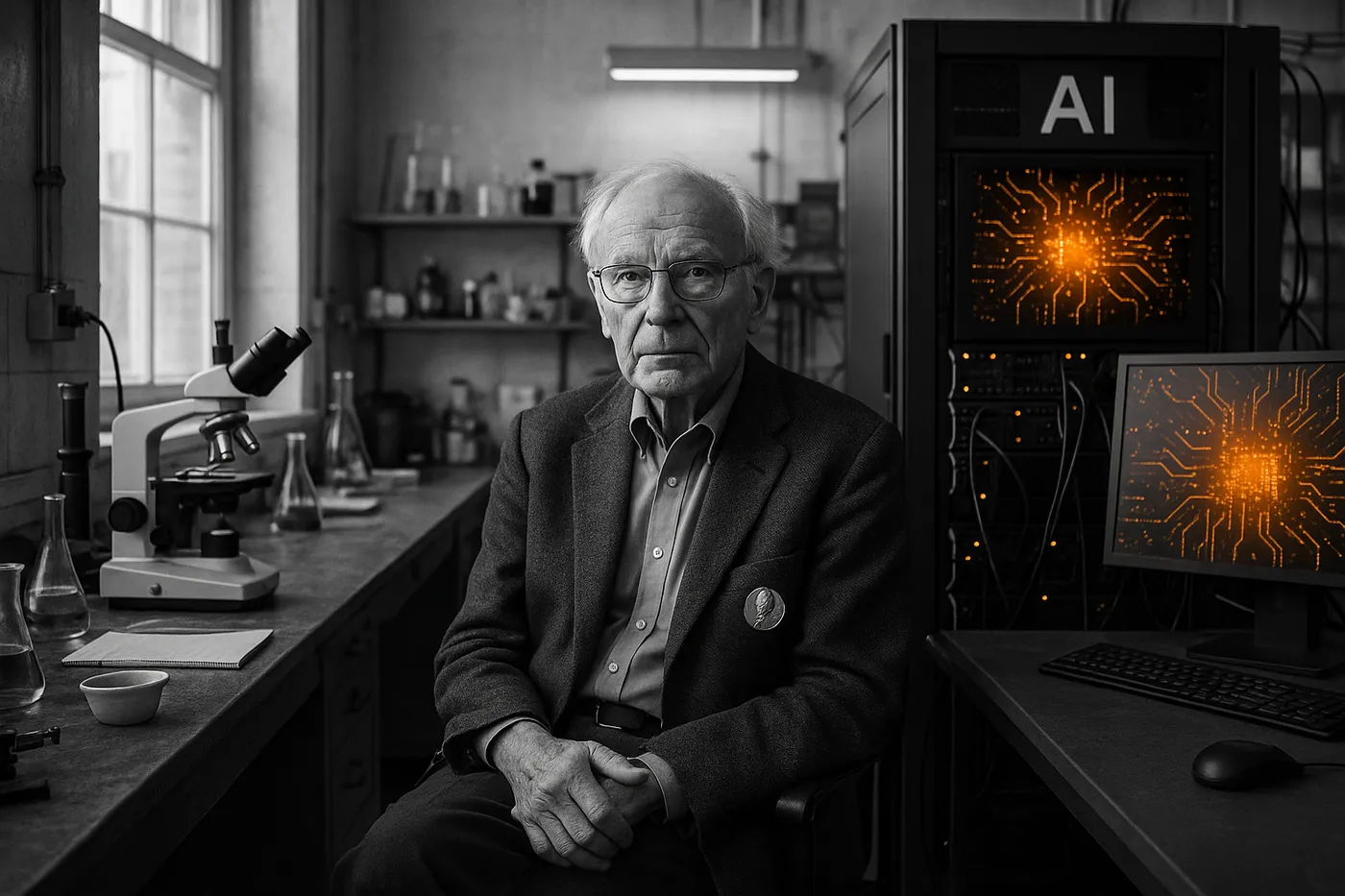
Photo 6: Breakthrough Anxiety
Nobel laureate Dr. Robert Harrison contemplates his laboratory's transformation as AI systems achieve in hours what took his team decades of research. Cambridge, Massachusetts, August 2024. Harrison's life work on materials science has been accelerated beyond recognition by artificial intelligence, creating both professional triumph and personal displacement as his expertise becomes a form of historical knowledge.
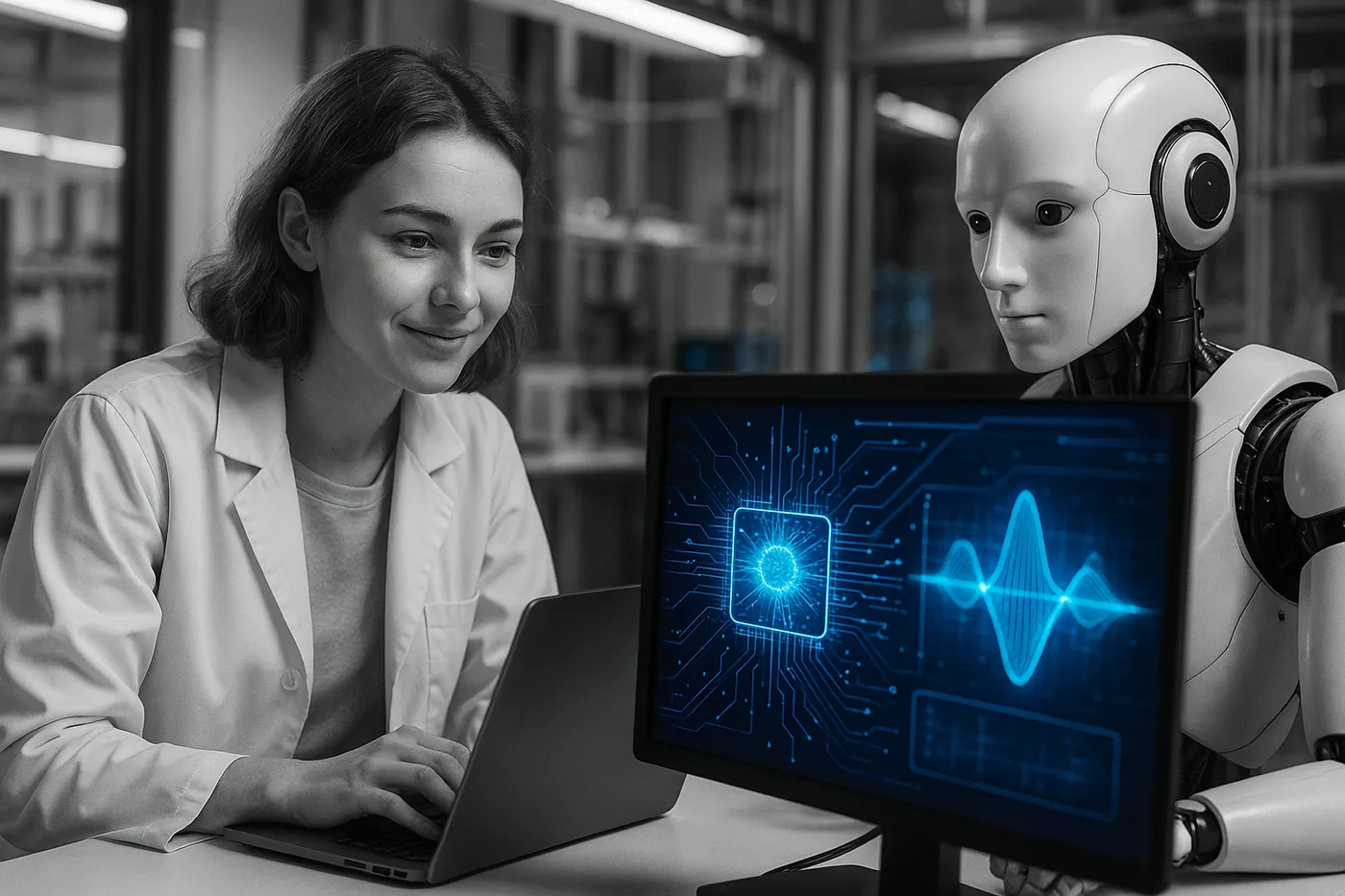
Photo 7: The New Partnership
Young researcher Dr. Nina Kowalski works alongside AI systems to explore quantum computing applications, representing successful adaptation to human-AI collaboration. Warsaw, Poland, September 2024. Unlike older colleagues who experienced the transition, Kowalski began her career in the AI age, demonstrating how the next generation of scientists naturally integrates artificial intelligence as an intellectual partner rather than a replacement.

